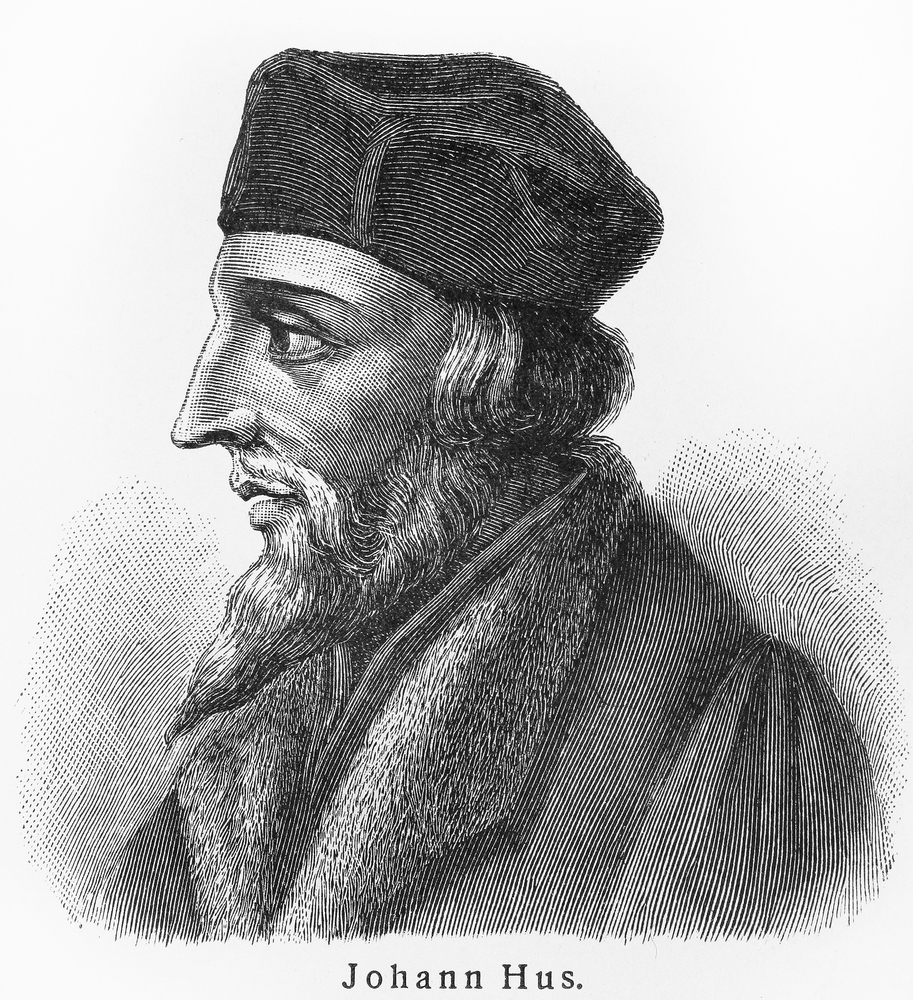
The 1st Day of Christmas: Jan Huss' Christmas letters and his call for peace on earth (1412)
Found in: The Letters of John Huss
The Czech religious reformer Jan Huss (1372-1415) wrote two letters from exile to the people of Prague in celebration of Christmas in 1412. He emphasizes that Christ is the peacemaker and that his message was “peace be to you” (pax vobiscum):
War & Peace
Dear friends, although I am now separated from you, because perchance I am unworthy to preach much to you, nevertheless the love which I bear towards you urges me to write at least some brief words to my loved ones.
Lo! dear friends, to-day, as it were, an angel is saying to the shepherds: I bring you good tidings of great joy that shall be to all people. And suddenly a multitude of angels breaks into praise, saying: Glory to God in the highest, and on earth peace to men of goodwill!
… Such, then, is the mercy that comes to you from God the Father and the Lord Jesus Christ our Saviour, Who grants you also peace. Our Master, the Peacemaker, taught His disciples to be peacemakers, so that, in whatsoever house they entered, they were to say: Peace be to you. When He rose from the dead and entered into the midst of them, He said: Peace be to you. When, too, He was minded to depart from them to His death, He said: Peace I leave with you, my peace I give unto you. After His manner, therefore, I desire peace for you also, dear friends—peace to you from Him, that you may live virtuous lives and overcome the devil, the world, and the flesh—peace to you from Him, that you may love one another, ay, and your enemies —peace to you, that that you may peaceably hear His word—peace to you, that you may speak with discretion—peace to you, that you may know how how to be silent with advantage.